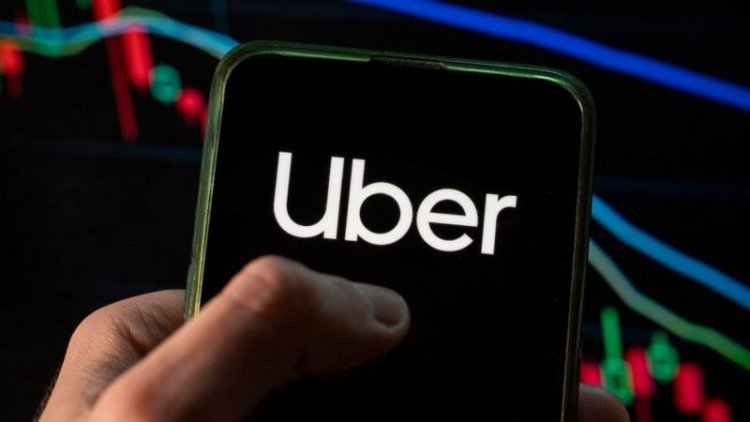As Asia investment values plummet, Uber loses $5.9 billion.
Uber's first-quarter loss increased to $5.9 billion from $108 million a year ago, owing to a $5.6 billion reduction in the value of holdings in other businesses, particularly Didi, a Chinese ride-hailing startup.

Uber, the ride-hailing and delivery service, has lost $5.9 billion (£4.7 billion), owing to its investments in other businesses.
Almost all of the loss, according to the corporation, was caused by a drop in the value of assets in businesses like Didi in China and Grab in Southeast Asia.
Didi and Grab's stock has plummeted since they went public in New York last year.
Despite the setback, Uber's CEO emphasized the company's efforts in recovering from the pandemic's effects.
"Our results show how far we've come in navigating out of the pandemic, and how the power of our platform is differentiating our business performance," said Dara Khosrowshahi, chief executive.
This occurred as the company announced that the number of journeys taken increased by 18% in the three months leading up to the end of March compared to the same period last year. This resulted in a 136 percent increase in revenue.
Uber's first-quarter loss increased to $5.9 billion from $108 million a year ago, owing to a $5.6 billion reduction in the value of holdings in other businesses, particularly Didi, a Chinese ride-hailing startup.
Uber, on the other hand, has enough capital to hold on to those losing stakes and sell them at a later date, according to chief financial officer Nelson Chai.
Its stock fell 4.65 percent in Wednesday's New York trading session.
Uber sold its operation in China to Didi in exchange for an 18 percent share in the Beijing-based firm in 2016, as it faced stiff competition in the world's second-largest economy.
Didi's market capitalization in the United States has plummeted by more than 80% since its $4.4 billion IPO on the New York Stock Exchange (NYSE) last summer.
China's internet authority ordered online businesses not to sell Didi's app within days of its IPO, claiming it illegally acquired users' data.
The company started in December which it would delist from the New York Stock Exchange and relocate to Hong Kong.
Didi confirmed this week that the US Securities and Exchange Commission was looking into its initial public offering (IPO).
Uber sold its businesses in Southeast Asia to Grab for a 27.5 percent ownership in the Singapore-based company in 2018 when both companies were still privately owned.
Grab's stock plummeted after its first public offering (IPO) on the Nasdaq stock exchange in New York in December of last year.
Its stock market value has plummeted by about 75% since its IPO, which was the largest ever by a southeast Asian company in the United States.
Uber also has a stake in Zomato, an Indian food delivery company that it acquired in 2020 in exchange for its Uber Eats operations in India.
Since its fantastic stock market debut in July, Zomato's shares have nearly halved in value.

 Boakyewaa Lawrencia
Boakyewaa Lawrencia 



































